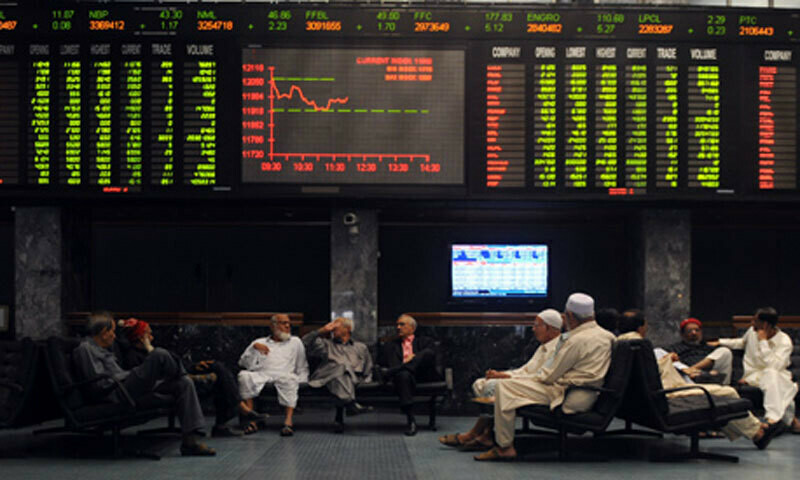KARACHI: Geopolitical tensions, a downward revision in growth forecasts by the International Monetary Fund (IMF), and a weaker rupee due to declining foreign exchange reserves triggered selling pressure at the Pakistan Stock Exchange (PSX). As a result, the benchmark KSE 100 index ended the outgoing week in negative territory, breaking its bullish momentum.
On Tuesday, IMF slashed its growth forecast for Pakistan to 2.6 per cent from 3pc for the current fiscal year, citing the impact of US tariffs. Fitch Ratings projected that the rupee may depreciate to Rs285 against the dollar in the coming months and to Rs295 by June 2026.
AKD Securities Ltd said the PSX remained volatile throughout the week, as escalating geopolitical tensions post the Pahalgam attack and India’s subsequent threat to revoke the Indus Water Treaty undermined investor sentiment.
However, positive news stemmed from the IMF’s World Economic Outlook for April, lowering Pakistan’s inflation forecast for FY25 to 5.1pc year-on-year from the earlier 10pc and 7.7pc for FY26.
News reports indicate that the government had reached a preliminary agreement with two foreign commercial banks for a $1bn loan facility at an interest rate of 7.6pc.
Moreover, Finance Minister Muhammad Aurangzeb met with representatives from the credit rating agency Moody’s to improve Pakistan’s credit rating following a recent upgrade by Fitch.
According to Arif Habib Ltd (AHL), Pakistani shares exhibited mixed trends during the outgoing week, initially continuing its upward trajectory driven by encouraging economic indicators.
However, the momentum weakened later in the week due to rising geopolitical tensions. On the macroeconomic front, banking sector deposits recorded a healthy growth of 11.7pc year-on-year in March. However, the State Bank of Pakistan’s (SBP) foreign exchange reserves declined $367m to $10.2bn.
Amid geopolitical noise and cautious investor sentiment, the benchmark KSE-100 index closed the week at 115,469 points, marking a fall of 1,846 points or 1.6pc week-on-week.
Sector-wise, negative contributions came from E&P (594 points), commercial banks (295 points), technology (188 points), power (140 points), and pharmaceutical (116 points). Meanwhile, the sectors that contributed positively were fertiliser (162 points), food (74 points), and automobile assembler (23 points). Scrip-wise negative contributors were UBL (507 points), Mari Energies (369 points), Engro Fertiliser (225 points), PSO (181 points), and Pakistan Petroleum Ltd (151 points).
Whereas scrip-wise positive contributions came from Fauji Fertiliser Company (403 points), Meezan Bank (237 points), MCB Bank (120 points), Sui Northern Gas Pipeline (78 points) and National Foods (54 points).
Foreigner buying clocked in at $2.09m compared to a net sell of $4.01m the previous week. Major buying was witnessed in OMCs ($2.7m), followed by E&Ps ($1.1m). On the local front, selling was reported by mutual funds ($18.9m) and Broker Propriety Trading ($2.02m).
The average trading volume tumbled 32pc to 599m shares while the value traded was down 10pc to $104mweek-on-week.
According to AHL, investor sentiment will remain closely tied to the evolving India-Pakistan situation in the upcoming week. Key announcements will likely fuel stock-specific momentum with the corporate earnings season underway.
Published in Dawn, April 27th, 2025


